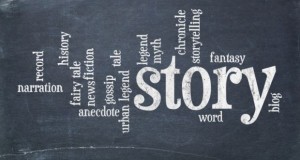“Too many leaders act as if the sheep… their people… are there for the benefit of the shepherd, not that the shepherd has responsibility for the sheep.”
~Ken Blanchard

I talked with Ken Blanchard recently, and I felt bad. I’m not sure I’ll ever be able read all of Ken Blanchard’s books. Yes, they’re usually short, and told in story form, but there are so many of them! But we were talking about leadership when he mentioned, “Are you here to serve, or be served?”
Ahhh… ok, that’s a really good question, rooted in one of his books I hadn’t read, “The Secret: What Great Leaders Know and Do.” He teamed up with Mark Miller of Chick-fil-A on this one. This co-author thing he does is one of the things he was asked about, and his response itself was a good lesson in leadership. “I like to collaborate. I’m better when I collaborate.” I thought a lot about that, and then realized that I am too! Is it possible that we all are?
But wait, that’s what I’d mention to talent as a rabbit trail. We’re talking about service.
My answer was that I’m here to serve… except when I’m not. Like a lot of people I focus on serving, but get caught up in being served – the struggle for recognition and the perks that come with the cool title.
Even the term “servant leadership” is irritating sometimes. Serving means the perks and bennies aren’t as important as the tangible legacy you leave. It means we all have to win, not just one of us win.
It’s entirely possible I’m preaching to the choir at this point, because those who want to be served will have stopped reading after the last paragraph.
If you’re still here, Blanchard and Miller indicate great leaders serve in at least five ways:
- See and shape the future: The leader is responsible for vision.
- Engage and develop others: The leader is responsible to develop those around him or her.
- Reinvent continuously: Life doesn’t idle, a true leader understands the need for change
- Value results and relationships: You need to be able to exercise both in order to lead
- Embody the values: If you say one thing and do another, you’re not leading.*
Just think about those qualities. They’re all higher focused and bigger picture than most alleged leaders concentrate on. I’d go as far as to say these five actions are the difference between leadership and management.
*This is the leadership principle that causes the most “leadership” failures. Or, you can think of it as the number one thing that holds people back from growing from managing to leading. There seems to be an inverse principle where the higher you get on the organizational food chain, the more you think you can fool people. But people are never as unaware or stupid as we may think. They hear you, but they also see you and your actions.





